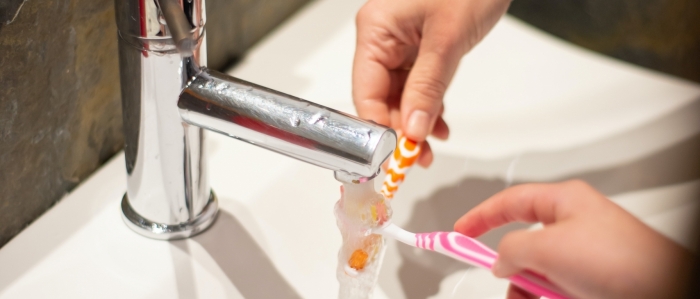5 Helpful Tips for Tooth Brushing

Educating children on from the start is key to healthy teeth and gums throughout their life. However, after your child is no longer an infant, approaching tooth brushing can seem tricky, especially with an opinionated toddler. That’s where our Hudsonville, MI, pediatric dentists can help.
The process can seem intimidating, but you don’t have to be a dental professional when it comes to . Remember to be patient, understanding, and encouraging as they adopt the practice at their own pace.
Here are 5 tips for making brushing teeth even easier..
1. Choose the Right Toothbrush
Because their hands, teeth and mouths are smaller, children require appropriately sized toothbrushes. Select one for them that has a comfortable, often thicker handle they’ll be able to grip and make sure it is a soft-bristled toothbrush. Remember that your child may need help holding the toothbrush as they learn so choosing something that’s easy to manage is always encouraged.
There are specially designed toothbrushes made specifically for toddlers, preadolescents, and even babies. Our dentists are always happy to answer any questions you may have if you’re not sure what to select for your child. To gain more information before you make that final purchase, call our Hudsonville pediatric dental office today!
Depending on your child’s age, we recommend the following brush styles:
- 0-3: silicone finger slip toothbrush once teeth begin to erupt. After age 1, parents can use a toothbrush with a small head
- 3-5: kid-sized toothbrush; typically, one with a larger handle
- 6-9: kid-sized toothbrush: one with a slimmer handle than those for toddlers
- 10+: adult sized toothbrush
2. Use Toothpaste with Fluoride
Fluoride is great for preventing dental cavities in children and adults. Many communities across the U.S. even have fluoride in their public drinking water to promote healthy teeth and gums for citizens.
for children wards off and slows down early stages of tooth decay. While fluoride is perfectly safe to use, you will need to control the amount of toothpaste that you give your children.
Read More → 4 Reasons Why Fluoride & Kids Are a Winning Combination
For children under 3, only use a “smear” of fluoride toothpaste or an amount equating to a grain of rice. Once your child has turned 3, they are able to use a pea-sized amount while brushing. Be sure to monitor children while they brush their teeth to ensure toothpaste is not swallowed accidentally.
3. Break Down the Process
You can’t just expect your small child to immediately understand the process of brushing teeth. Every day children learn more and more about the world around them. If they are very young, they’ve never encountered a toothbrush let alone grasped the concept of keeping their teeth clean.
Related Post → Should Kids Use Mouthwash?
To make it easier for them, break it down into small steps. Start by showing them the toothpaste bottle and the toothbrush individually to help familiarize them with the objects. It can also be helpful to use toys as models and pretend to “brush” their teeth or have your child practice on a stuffed animal.
4. Have Fun When Practicing
doesn’t have to be a boring activity so make it fun! Instead of just setting a timer and monitoring your child’s brushing, turn on music to dance to or play an educational video at the same time.
If your child is more into stories, read a short one to them for 2 minutes or get creative and make up your own to keep them engaged. Transforming brushing time into an enjoyable experience will make your little one excited to repeat the process every day.
5. Reward Good Behavior
Contrary to popular belief, rewards do not have to be expensive items or unhealthy foods your child doesn’t need. Small rewards can be used responsibly as motivational tools when teaching tooth brushing.
Oral hygiene is something to celebrate. Try setting weekly goals and use stickers to mark completed days on a calendar. If your child keeps up with brushing, they can earn an extra hour of TV time, the honor of picking out a bedtime story, or their favorite dinner.
Practice Preventive Care Early
Children may not always understand the importance of tooth brushing. However, as their parent or guardian, it is up to you to teach them about oral health and why brushing at least twice a day and flossing daily are good habits to form.
Our pediatric dentists in Hudsonville, MI, are more than happy to give further advice on brushing during your child’s routine dental checkups. Call Hudsonville Dental Kids today at (616) 209-4039 or contact us online to schedule an appointment.
This blog post has been updated.
